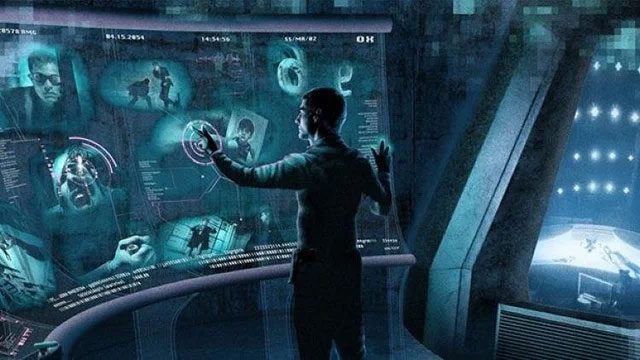Minority Report is a highly acclaimed science fiction film about a special police unit that can arrest murderers before they commit their crimes, aided by three individuals with precognitive abilities known as Precogs, who can foresee impending murders.
It’s a fantastic movie, especially for fans of the crime sci-fi genre or Tom Cruise enthusiasts. However, the reason we bring it up here is that a group of researchers has recently announced the creation of an AI-supported system that can predict crime with 90% accuracy. Unlike the film, “this system only requires past data and can predict future actions.”

Advancements in artificial intelligence (AI) and machine learning are attracting the attention of governments, particularly regarding the use of these tools to develop predictive policing strategies aimed at crime prevention.
Social scientists and data researchers from the University of Chicago have developed an advanced algorithm that works by learning patterns of time and geographic location from publicly available data on violent and property crimes. According to the University of Chicago, the new model can “isolate crime by examining the time and spatial coordinates of discrete events, then detect patterns to predict future events. It divides the city into spatial grids approximately 300 meters wide and predicts crime in these areas rather than relying on traditional neighborhood or political boundaries, which can also be biased.”
A scientific report on this new research was published in the journal Nature Human Behavior on June 30, 2022, showing that the accuracy of predictions from the new algorithm reaches up to 90%, effective not only in Chicago but also with data from seven other U.S. cities: Atlanta, Austin, Detroit, Los Angeles, Philadelphia, Portland, and San Francisco.
“We have created a digital version of the urban environment. If you provide it with data from what has happened in the past, it will tell you what will happen in the future,” said Dr. Ishanu Chattopadhyay, Assistant Professor of Medicine at the University of Chicago and a senior author of the study.

Data scientists and social scientists at the University of Chicago developed a new algorithm that predicts security conditions using machine learning methods to analyze time and geographic location patterns from publicly available crime data related to property and violence. The algorithm has proven successful in predicting future crimes up to a week in advance with approximately 90% accuracy.
This model has been tested and validated using historical data from Chicago concerning two major crime types: violent crimes (homicides, assaults, gang-related incidents) and property crimes (thefts, robberies, and auto thefts). According to the data obtained from the study, this AI-supported model can predict future crime a week in advance with about 90% accuracy.
While the model and algorithm may not yet be fully refined, this AI-supported technology is certainly poised to be a significant breakthrough in global security.
Predictive crime models have been previously used by many law enforcement agencies but often lack high accuracy due to reliance on a narrower set of factors, missing the nuanced relationships between crime, the complex social environments of cities, and the impacts of police enforcement.
- In 2012, the Chicago Police Department, along with academic researchers, implemented the “Crime and Victim Risk Model.” This model used factors such as age and arrest history to generate a list of individuals of interest, or potential victims and perpetrators of gun violence. This list later leaked and led to numerous lawsuits. In 2017, an investigation by the Chicago Sun-Times revealed that nearly half of those identified by the model as potential offenders had never been charged with illegal gun possession, with 13% never having been charged with a serious crime.
- AI is now smart enough to listen to urine sounds and diagnose urinary diseases
- The Arctic sky is changing to a frightening gray-black
- From paracetamol to morphine, this is how painkillers work





















































